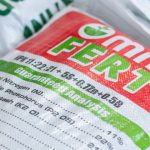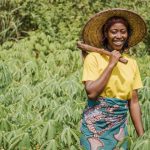Agriculture’s role in diversifying the Economy
Home | | Articles | | Agriculture’s role in diversifying the Economy
The agricultural sector remains the backbone of the Ghanaian economy and accounts for about 20% of GDP and employs more than half of the workforce, mainly small landholders. Agriculture has a large multiplier effect on employment, creating over 750 jobs for every additional $1million of output.
Surveys show that rural households in Ghana are predominantly engaged in operating small farms or livestock, however it is interesting to note that about 22% of the urban households are also engaged in agricultural activities. The average farm holdings are less than 1.5 hectares in size. This applies to about 90% of farm holdings, highlighting the low levels of commercial farming. Smallholder farming (SHF) contributes 80% of the total agricultural output in the country.
Ghana is the world’s second-largest cocoa producer behind Ivory Coast and Africa’s biggest gold miner after South Africa. The Ghanaian economy is highly dependent on the export of primary commodities such as gold, cocoa, and oil, and consequently remains vulnerable to potential slowdowns in the global economy and commodity price shocks. The Government of Ghana seeks to diversify and industrialize the economy, through agro-processing and manufacturing.
The government has identified the agriculture sector as a key area for job creation and is keen to involve the private sector in its initiative of ‘Planting for Food and Jobs’. The sector’s growth is projected to be driven by the crops subsector, including cocoa. Apart from cocoa, some other products under focus include rice, cassava (manioc, tapioca), peanuts, cashew, soyabean, corn, shea nuts, bananas, and timber.
The government’s “1-Village, 1–Dam” and the “1-District, 1-Factory” initiatives are closely linked to the Agricultural sector initiatives. The idea is to create backward and forward linkages across the value chain. An example is by providing the raw materials produced locally to serve as inputs to the factories.
The government’s ability to achieve the goal of moving to a more diversified economy depends upon the ability of all stakeholders to adapt to a changing landscape characterized by climate change, increasing weather variability, changes in market demand, and higher food price volatility, amongst others.
Recent Posts
-
Press Statement OMNIFERT
January 17, 2024 -
Omnifert Press Release – Farmers Day 2017
January 17, 2024 -
CEO’s Speech for Omnifert Commissioning 2018
January 16, 2024


